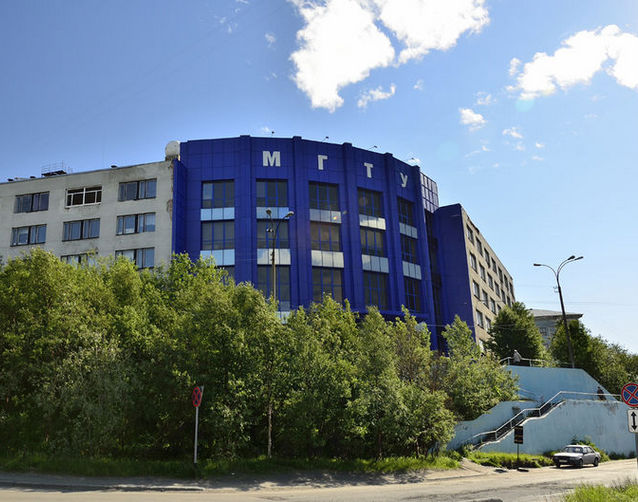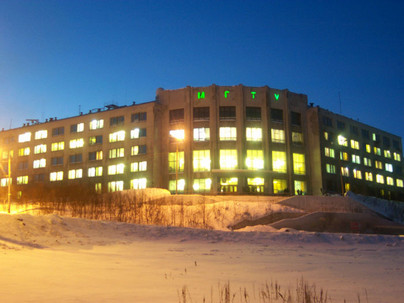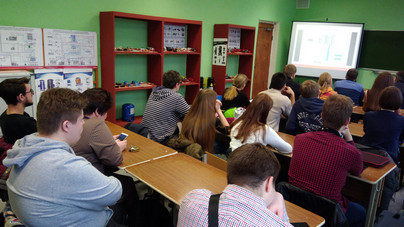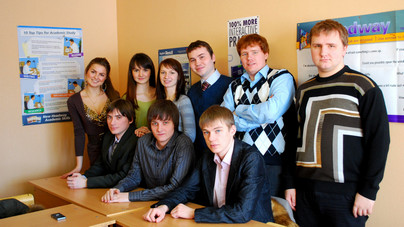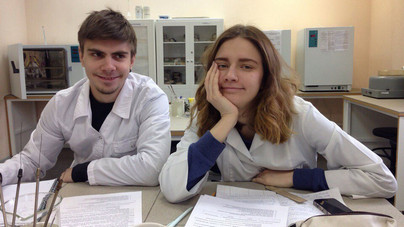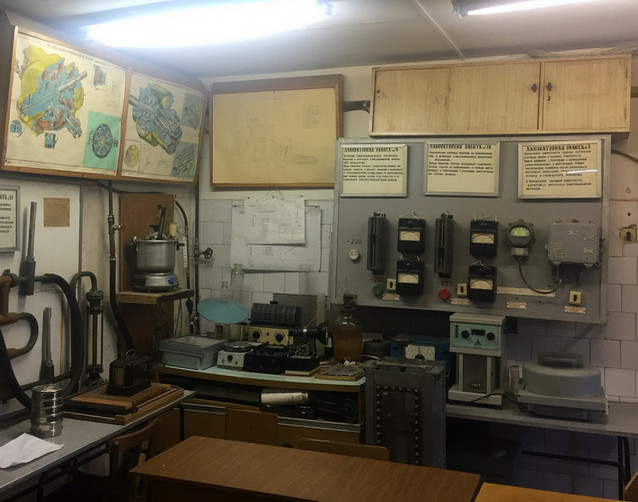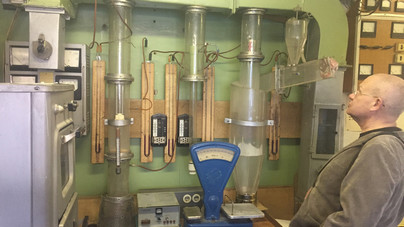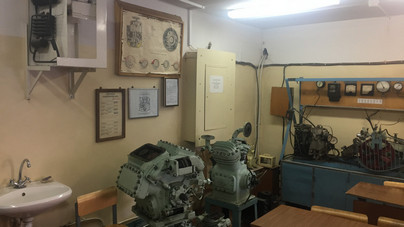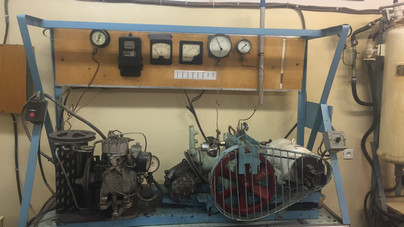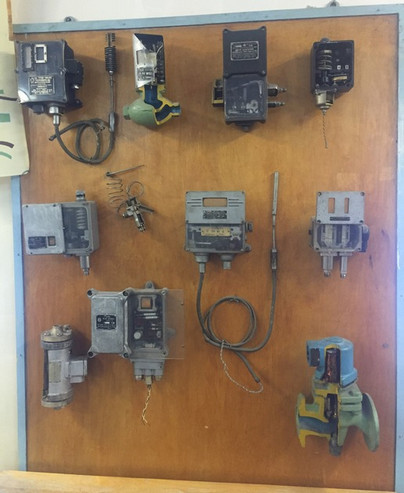Murmansk Arctic University (MAU)
About university
The Murmansk State Technical University (FGAOU VO MSTU), a federal state budgetary higher education institution, is the largest higher education institution in the Murmansk oblast.
At Phase 1 of the Project “Phase-out of Fluorinated Greenhouse Gases and Ozone-Depleting Substances at Fish and Seafood Processing Enterprises of the Murmansk Oblast (Arctic Zone of the Russian Federation)”, MSTU was selected as a technical assistance recipient under the component Establishment of the training center of Phase 2.
Its history began in 1950 when the Murmansk Higher Marine School — the world’s first higher educational institution specializing in the training of specialists for the fishing fleet — was established. By the time the Project started, the university consists of four institutes, one faculty, two divisions, and one college. The students were taught in more than 100 maritime, engineering, and technical education programs.
On September 23, 2022, the academic Councils of Murmansk State Technical University and Murmansk Arctic State University decided to merge universities. On December 27, an order was signed at the Ministry of Science and Higher Education of the Russian Federation, according to which both institutions were reorganized into a joint university — Murmansk Arctic University (MAU). In its new form, the university started its activity on June 1.
Tasks to be solved
By 2020, refrigeration specialists for the fishing industry of the Murmansk oblas were taught at MSTU, Mesiatsev Murmansk Marine Fishing College, its division, Murmansk Industrial College, a state autonomous educational institution of vocational education of the Murmansk oblast, and some others.
Their commonly encountered problems were obsolete infrastructure and education programs.
At the same time, safe handling of natural refrigerants (ammonia, carbon dioxide, hydrocarbon refrigerants) requires special training.
As part of the Project, it was decided to provide technical assistance to MSTU (now—MAU), and to establish a training center on its base to ensure:
- reduction of ODS and F-gas leakages gases during installation and maintenance of refrigeration equipment;
- improvement of energy efficiency of refrigeration systems;
- familiarization of specialists from the fishing industry and servicing sector with existing alternative technologies and substances;
- control of ODS and F-gas use in the region with more efficiency, for environmental and law-enforcement authorities of the Murmansk oblast.
In fact, the training center was intended to become a center of technology transfer and personnel development for the entire Russian Arctic zone.
Completed activities
In 2021-2022, a modern training center was established within the framework of the Project. There specialists familiarize themselves with the practice of using low-GWP ozone-safe substances and technologies, a safe and environmentally friendly approach to work with natural refrigerants, ODSs and F-gases, the legal framework of their use, and record keeping.
The training center gives an opportunity of professional development for the personnel of catching, processing, and tendering vessels, onshore processing enterprises; the employees and specialists of local environmental and controlling agencies; the members of industry-specific secondary and higher educational institutions. Moreover, its educational programs will be granted to other education institutions of the Murmansk oblast that train refrigeration technicians for the regional fishing industry.
The establishment of the turn-key ready training center was financed by the grant of the Arctic Council Project Support Instrument and co-financed by a technical assistance recipient.
Grant-funded works:
- creation of the physical infrastructure (design, manufacture and installation of complex training equipment):
- training stand “Welding and soldering. Pressure and leakage testing. Evacuation. Air-handling unit”;
- training stand “Work methods for hydrocarbon refrigerants. Conversion of the refrigerating plant from R-22 to R-290”;
- training stand “R-744 (CO2) transcritical refrigerating plant”;
- training stand “Diagnostic troubleshooting”;
- training stand “Refrigerating plant/heat pump”;
- training stand “Refrigeration plant automation and control. Control panel assembly, controller configuring”;
- working station of a refrigerating engineer;
- training stand “Refrigerant types. Identification. Reclamation and regeneration”;
- laptops;
- demonstration screen;
- automated training station with the training stand dispatch system;
- supply of consumables for the operation of the training center during 1 year;
- development and supply of teaching and learning aids (interactive presentations for the training courses, printed manuals);
- creation of a turn-key ready website with 4 online courses;
- “International and Russian legislation in the field of protection of the ozone layer”;
- “Environmentally safe recovery of ODSs and F-gases, their destruction or reclamation and recycling”;
- “Use of natural refrigerants (carbon dioxide, ammonia, hydrocarbon refrigerants) in the fishing industry of the Russian Federation”;
- “Safe use of natural refrigerants: ammonia, hydrocarbons, carbon dioxide”;
- training (professional development) of 3 instructors of the training center.
The contractor was selected through bidding.
Co-financing by the technical assistance recipient:
- dismantling, removal and disposal of old equipment, pipelines, fittings, and construction waste from the site of the training center;
- development of overhaul design and estimates for the training center;
- preparation of the site for the physical infrastructure of the center, including measures to ensure the safe operation of training stands demonstrating ozone- and climate-safe technologies;
- retraining of all the personnel of MSTU;
- organization of celebration of the Ozone Day and other activities related to the protection of the ozone layer and climate;
- carrying out of activities (round tables, workshops, webinars) to demonstrate the training center to federal and regional executive bodies and other organizations concerned;
- maintenance of the training center, including the provided training stands, programs, courses, tools and equipment, and instructors’ salary;
- purchase of consumables for the operation of the training center during 1 year;
- payment for heat and electrical energy.



